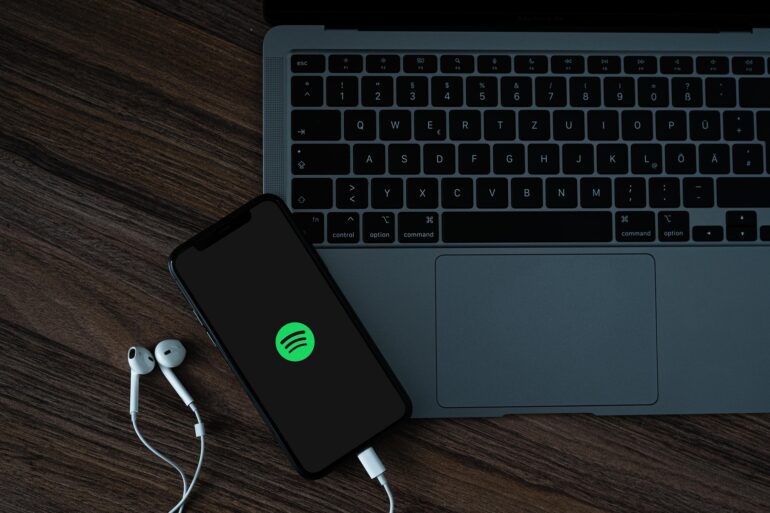TL;DR:
- Spotify has removed 7% of Boomy’s AI-generated songs due to suspicions of bot activity for manipulating streaming numbers and generating illicit revenue.
- Universal Music alerted Spotify about the suspicious streaming activity and encouraged partners to exercise vigilance around monitoring activities on their platforms.
- AI-generated music is becoming more prevalent on music streaming platforms, and music industry figures are sounding the alarm bells about the impact on royalties and copyright violations.
- Boomy enables users to create original songs based on text inputs, and its users have created over 14 million songs, representing just under 14% of the world’s recorded music.
- Spotify pays royalties to artists and rights holders on a per-listen basis and takes action to protect honest, hardworking artists’ royalties.
Main AI News:
Music Streaming Platform Spotify has reportedly removed a significant number of songs from generative AI company Boomy. The startup’s systems were responsible for the creation of seven percent of the platform’s songs, highlighting the increasing prevalence of AI-generated content on music streaming platforms.
Universal Music alerted Spotify and other leading music streaming services about suspicious streaming activities on Boomy’s tracks. It was suspected that bots were being employed to boost listener figures, thereby generating unauthorized revenue for uploaders. To protect the royalties of hardworking artists, Spotify pays them on a per-listen basis.
Spotify confirmed that it had removed some Boomy tracks, citing that it’s a longstanding, industry-wide issue. The company also noted that it mitigates such issues’ impacts by taking actions, including withholding royalties and removing streaming numbers.
According to the Financial Times, Universal Music Group’s Chief Digital Officer Michael Nash expressed his encouragement when partners exercise vigilance around monitoring activities on their platforms. AI-generated music came to the limelight recently after a song that seemingly included vocals from The Weeknd, and Drake went viral. The artists’ representative, Universal Music Group, claimed that using their voices to train generative AI systems violates copyright law.
Music industry figures have expressed concerns about the wider impact of AI-generated tracks and people using bots to drive up listener figures and siphon money from streaming services’ royalty payments.
Boomy, which launched in 2021, allows users to create songs based on text inputs. The company announced that curated delivery to Spotify of new releases by Boomy artists had been re-enabled. Boomy claims its users have created over 14 million songs, representing just under 14 percent of the world’s recorded music. The platform enables users to create original songs within seconds and upload them to streaming platforms while earning from people’s listens.
Conlcusion:
The removal of a significant number of AI-generated songs by Spotify from Boomy highlights the ongoing battle against artificial streaming and the measures taken by leading streaming services to protect honest, hardworking artists. It also underscores the increasing prevalence of AI-generated content on music streaming platforms and the need for vigilance to monitor suspicious activities.
The concerns about the wider impact of AI-generated tracks and bots driving up listener figures and siphoning money from streaming services’ royalty payments indicate that the music industry needs to develop more robust mechanisms to regulate and safeguard against fraudulent activities. The market needs to balance innovation with ethical and fair practices that protect creators and copyright owners’ rights while delivering value to listeners.

